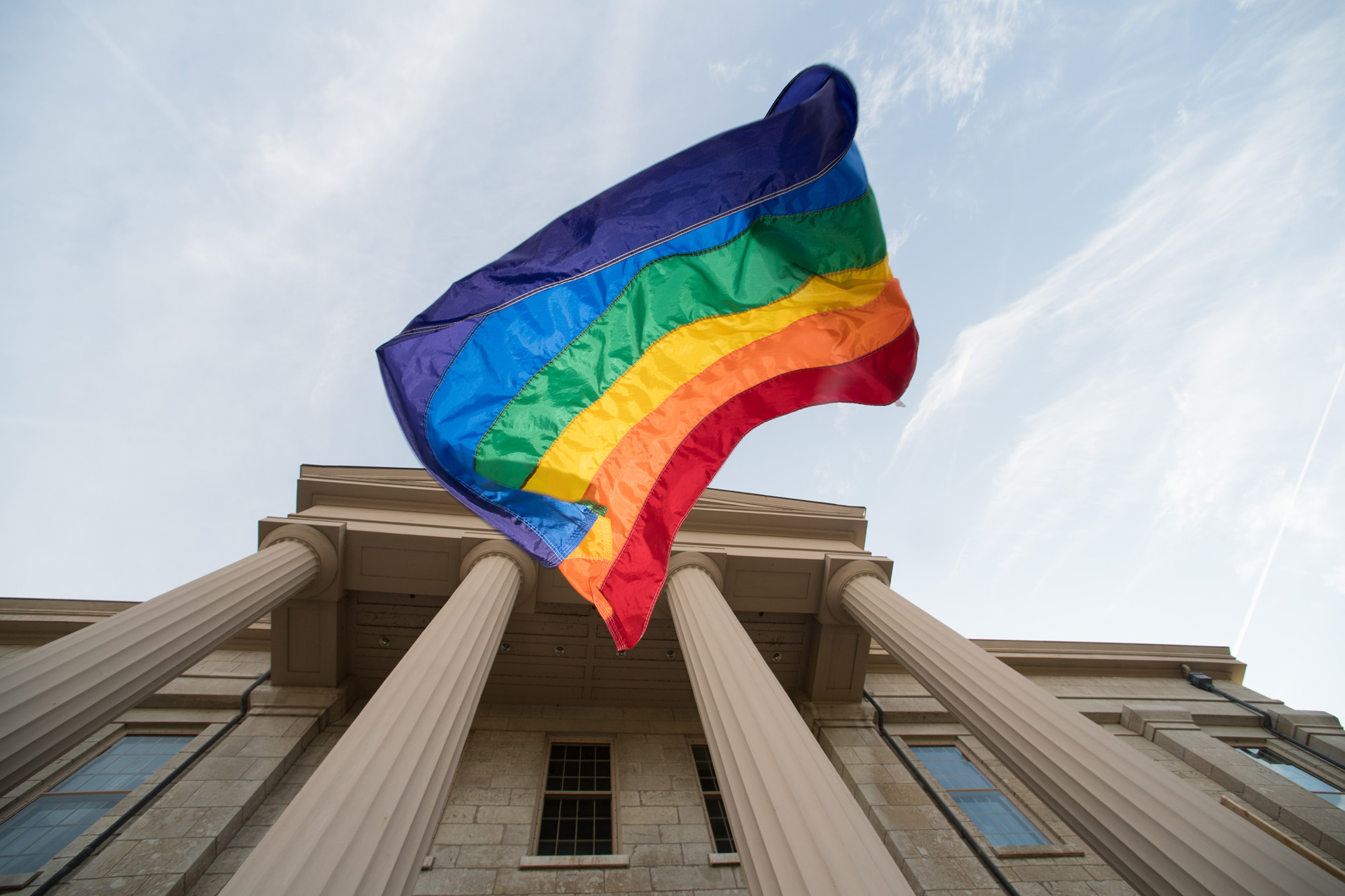LGBTQ+ milestones at the University of Iowa

The University of Iowa becomes the first state university to officially recognize and continuously fund a gay student organization.
The Daily Iowan runs a five-part series on the gay liberation movement on campus.
The first of three annual Midwest Gay Pride Conferences is held at the Iowa Memorial Union, featuring panel discussions, workshops, and nationally known speakers.
Iowa City passes the state’s first antidiscrimination ordinance that includes sexual preference, protecting them from discrimination in employment, credit transactions, and public accommodations.
UI President James Freedman approves a campus-wide ban on discrimination on the basis of sexual orientation, though the policy is not included in the university’s operations manual until 1995.
The UI LGBTQ Staff and Faculty Association is established.
The UI College of Law hires an openly lesbian couple to its faculty.
The University of Iowa becomes the first public university to provide benefit coverage to domestic partners of employees.
The University of Iowa adds gender identity to its nondiscrimination policy, making it the first university to do so.
Iowa City becomes one of the first U.S. cities to extend protection based on sexual orientation or gender identity.
The University of Iowa endorses Safe Zone certification for faculty and staff.
The University of Iowa offers the first Rainbow Graduation to celebrate the achievements of LGBTQ+ graduates and their allies.
The Lesbian, Gay, Bisexual, Transgender, and Queer Resource Center, now known as the Pride Alliance Center or “Pride House,” is established on campus.
Iowa outlaws discrimination based on sexual orientation or gender identity, making it the 18th state to offer such protection for gay people and the ninth to protect transgender people.
The Iowa Supreme Court upholds same-sex marriage.
The University of Iowa earns 4.5 out of 5 stars in the Campus Pride LGBTQ-Friendly Campus Climate Index, based on student life options, campus resources, and recruitment and retention efforts.
The University of Iowa becomes the first public university to include optional questions about sexual orientation and gender identity on its admission application.
UI Health Care opens the state’s first medical clinic that focuses on the LGBTQ+ community.
Safe Zone begins offering workshops on transgender inclusivity.
Iowa City is one of 47 cities (out of 408 cities rated by the Human Rights Campaign and the Quality Federation Institute) that scores a perfect 100 on the Municipal Equality Index, which measures fairness and equality for LGBTQ+ individuals and their families.
The University of Iowa becomes one of the first universities in the nation to ask students for their preferred names and pronouns of reference, and to offer a third gender option.
The UI is recognized as one of the Top 50 Best LGBT Friendly Colleges and Universities, as selected by College Choice.
The University of Iowa develops a fund to support students with demonstrated financial need with legal name changes and updates to official documents.
The UI adds a section to its editorial style guide to address bias in language, including LGBTQ+ terminology, pronoun usage, and nonbinary gender identities.
UI Hospitals & Clinics earns a perfect score in the Healthcare Equality Index, the national LGBTQ+ benchmarking tool of the Human Rights Campaign.
A UI graduate student in history forms the nonprofit LGBTQ Iowa Archives and Library to collect, preserve, and share the LGBTQ+ history of Iowa and increase access to LGBTQ+ literature for all ages.